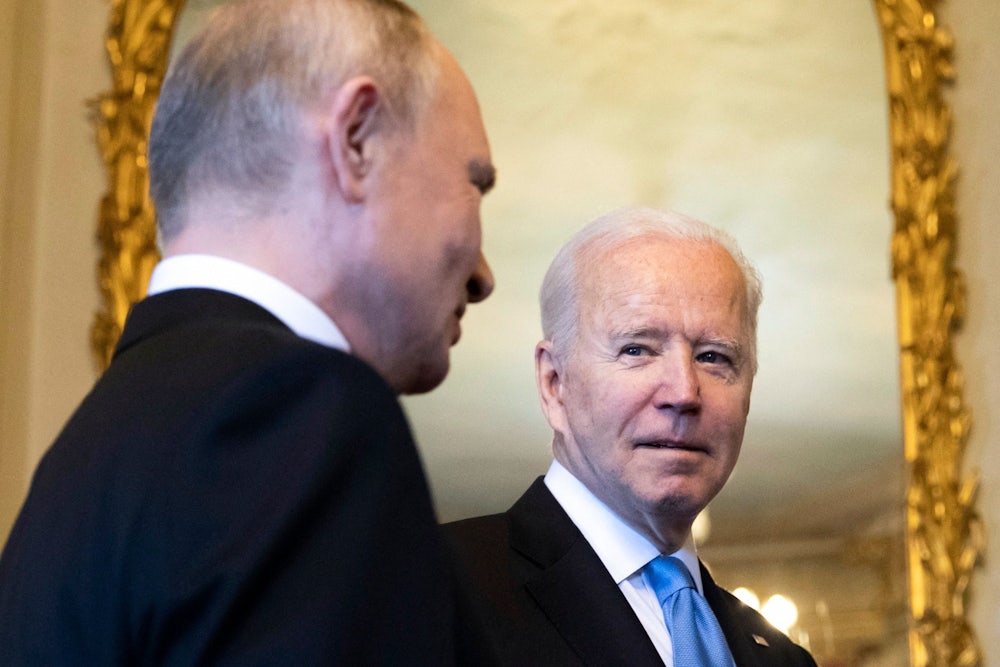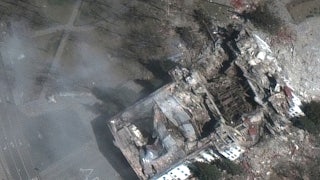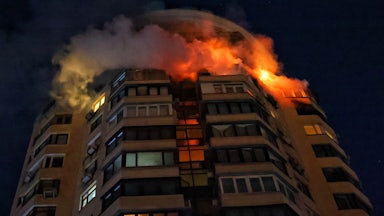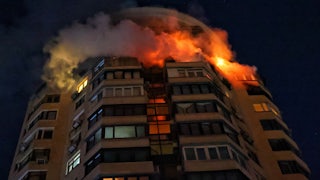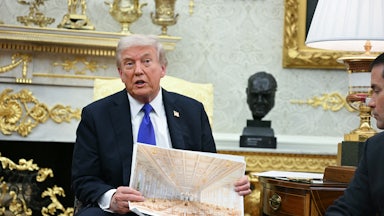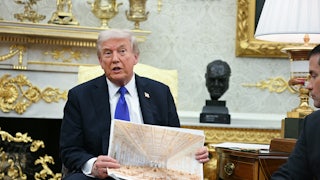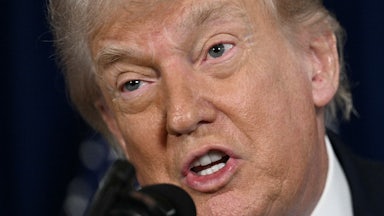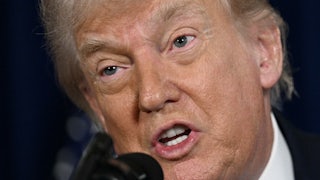In 1965, Pakistan’s Foreign
Minister Zulfikar Ali Bhutto explained his country’s commitment to obtaining a
nuclear weapon. “We will eat grass, even go hungry, but we will get one of
our own,” he said. Within 12 years, Pakistan’s first nuclear device was reportedly
ready. Russian leader Vladimir Putin echoed Bhutto’s famous comment at a 2017
meeting he attended with China, India, and other emerging powers. He said
that North Korea would “rather eat grass but will not give up the [nuclear]
program if they do not feel safe.”
Bhutto’s famous comment—and Putin’s invocation of it—illustrates the great lengths states will go to protect what they see as their country’s vital security interests. This reality should be kept in mind as the West looks for new ways to punish Russia. Facts are still being confirmed, but the United States and its allies are horrified by the shocking revelations that retreating Russian troops apparently bound and massacred Ukrainian civilians in and around Bucha, a city near Ukraine’s capital of Kyiv. But after weeks of escalating sanctions and diplomatic isolation, is there anything more the West can do to isolate and punish Russia for its war crimes?
There is much left we could do. But sadly, it’s unlikely to make Russian leaders rethink their brutality.
In January, President Biden warned Putin that any invasion of Ukraine would be met with “swift and severe consequences.” He has made good on the promise. “Western sanctions are the toughest measures ever imposed against a state of Russia’s size and power,” the historian Nicholas Mulder wrote in March. Biden told the American public to be prepared for hardships as a result of the cutoff of one of the world’s major economic powers and oil exporters. A major Moscow bank has been severed from the international financial system. Oil imports have been banned in the U.S., and oligarchs’ ill-gotten wealth has been appropriated. Most of the Central Bank of Russia’s hundreds of billions of dollars in assets have been frozen.
And that was before the bodies in Bucha were discovered this week. Now there are calls for more to be done. Biden announced additional sanctions on Wednesday, and the European Commission proposed banning coal and oil imports.* By banning Russian vessels and transport operators, the E.C. will effectively be preventing Moscow from moving goods through the European Union.
These are no small measures. In Germany alone, Russia supplies much of the gas, oil, and coal that powers the continent’s biggest economy. Before the evidence of the atrocities in Bucha, Berlin had resisted calls for this level of sweeping sanctions, pointing out that depriving Germany of its energy supplies will hurt itself as much as Moscow. One German industry leader asked this week: “Do we want to blindly destroy our entire national economy? What we have built up over decades?” Such are the stakes for a prosperous Europe that is closely intertwined with Russia’s economy.
In the U.S., analysts are observing that Russia still has much wiggle room. Writing in Foreign Affairs, think tankers Edward Fishman and Chris Miller suggest how much is left to be done. Just one of Russia’s five biggest banks is cut off from SWIFT, the interbank messaging service. The country’s biggest state-owned energy conglomerates are still functioning—and China, India, and other Putin-friendly nations are still buying plenty of Russian resources.
Still, these analysts suggest additional measures that can be taken against Russia. “Together these can cut off Russia’s ability to earn money from oil,” Miller said in a telephone interview. A Tufts University historian and fellow at the American Enterprise Institute, Miller says that if the West applied secondary sanctions to countries that continue to import Russia’s energy, those countries will likely calculate that trading with Moscow isn’t worth the costs. Since 60 percent of Russia’s export revenue is from oil and gas, blacklisting those commodities would deliver a “tremendous hit” to the country’s gross domestic product.
But even Miller and Fishman concede that these efforts may be fruitless. “Such a strategy might not end Russia’s war against Ukraine,” they write. They acknowledge that unprecedented sanctions have already been leveled at Russia and done little to change its leaders’ calculation. The ruble, Russia’s currency, has already mostly recovered from a temporary crash following the imposition of sanctions. “There’s no evidence that the prospect of harsher sanctions is holding Putin back,” Fishman and Miller write. There is a circular logic to calls for added economic penalties for Russia: The sanctions aren’t working, so let’s add more of them.
Evidence also suggests that instead of responding to the international economic pressure inflicted on it by rising up against its leaders, the Russian public has intensified its support for the Kremlin. The existing polling data indicates that the war in Ukraine is highly popular among most Russians. Putin’s approval rating stands at 83 percent. There is no sign of Russians buckling under the already-huge sanctions in place.
Surely at least some of that public support results from being bombarded with state propaganda. Independent newspapers, magazines, radio, and television have been shut down en masse since the war started, and they had been progressively weakened in the previous years. Russians cannot be expected to oppose a war whose reality they know nothing about—and that they can’t even call a “war” without fear of being arrested. (That’s one reason why charges that Russians are collectively responsible for the assault on Ukraine are misguided.)
More disturbing is the understanding that countries have demonstrated their ability to withstand huge amounts of punishment for decades when they feel their interests are at stake. Cuba hasn’t buckled under a U.S. embargo for more than 60 years, a huge ongoing blow for a country that was once the second-richest in Latin America because it exported huge amounts of sugar to the American market. Similarly, Iran’s oil sales have been devastated by years of Western sanctions, and all enterprises tied to the state have been declared off-limits to most countries. None of that has moderated Iranian behavior in any significant way.
In addition, Russian leaders have had years to prepare to endure harsh economic measures. After all, they have been under sanctions since Putin invaded the Crimea in 2014. Richard Connolly, a British researcher who authored the creatively titled book Russia’s Response to Sanctions, has written about how the country is constructed to safeguard independence in the face of global hostility. Russia has built a “durable, in some ways primitive system,” Connolly has said. It has small amounts of debt, governmental control over the banking system and key industries, and a diversified trade portfolio. “I’m not saying they’re going to have a wonderful time. I’m saying they have the resources to deal with these problems.” He calls Russia’s setup “the Kalashnikov economy.” Tough and deadly, like the gun.
It’s doubtful that any economic
costs will be severe enough to change the calculus of Putin or the Russian
public in the short term. When countries have strong objectives, they will
suffer to achieve them. That sad reality should inform any decisions going
forward about how to react to Russia’s ongoing brutality in Ukraine.
* This article has been updated.
